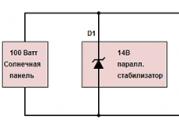Hcg in dynamics after eco. HCG level dynamics after IVF. Changes in chorionic gonadotropin at different stages of gestation.
Those future mothers who have become pregnant naturally often use tests to determine a new life in the body. The essence of this diagnostic method is to identify the pregnancy hormone, which is called human chorionic gonadotropin (hCG). It is to him that sensitive test strips react. After all, the synthesis of the hormone begins within a few hours after successful conception and is characterized by growth, reaching a maximum at 7-11 weeks of the term. And what is the situation with pregnancy resulting from in vitro fertilization? Let's learn about it in detail.
Find out more about your pregnancy!
Such a pregnancy, unfortunately, has no chance of survival, it can also be dangerous to the life and health of the mother.
Launching the Smart Pregnancy Calendar
In general, after the transfer is complete, schedule a pregnancy test within 14 days. The bottom form can help you close a little.What is hCG - “beta”?
This is where things get interesting. The second test is scheduled when the first test is positive. It should then stabilize and then phase out until the delivery date. Some calculators are easier to understand than others. Here is some information to help you use them.
So, human chorionic gonadotropin is synthesized by the placenta and is the main hormone of pregnancy. It has a structure similar to luteinizing hormone. Definition of hCG in the body of the expectant mother, namely in her blood, allows you to control the process of interesting position women. When doctors ascertain, according to the analysis, a decrease or slowdown in the growth of this hormone, then one can assume an undeveloped or ectopic pregnancy, a threat of miscarriage.
Why is a beta-hCG blood test more sensitive than a pharmacy test?
There is no point in testing too early, because you may get frustrated unnecessarily. You need at least two different tests, and to achieve best results tests should be at least 2 days apart.
- On that note, you need to test twice at least.
- Two separate measurements are required to use the calculator.
- Tests should be at least one day long, but ideally more than 2 days long.
The determination of hCG in the blood of a woman allows doctors to diagnose the duration of a woman's pregnancy. In the usual representativeness of the weak half of humanity, its level is up to 5 mIU / l. Pregnancy tests detect the hormone if its urine value is between 10 and 25 mIU/L. Ultrasound examination will show the fetus when the level of human chorionic gonadotropin reaches 1000 mIU / l.
Once the egg is retrieved, the specialist will attempt to fertilize the eggs. Some or all of the eggs will be fertilized. As soon as fertilization begins, the embryos begin to age. But you don't have to worry about staging embryos for transfer. Typically, a fertility specialist will test your blood for pregnancy 14 days after the transfer.
Before you can calculate any results, you need to enter the results of the second test that was run. In other words, your results may be skewed if you do not allow some time to pass and use the results of two tests that were taken on the same day.
Many women do not need to be explained that the physiological course of pregnancy requires less control of the level of this hormone than control of its dynamics after in vitro fertilization. In this case, tracking the hormone is necessary to identify healthy, their development in the woman's uterus.
This level fluctuates significantly with the onset of pregnancy. This happens not only weekly, but daily. Reproductologists are guided by hCG indicators in monitoring the course of pregnancy after IVF. So, for example, in the first week of the term hCG indicator in the blood of the expectant mother is from 156 mIU / l. In the second or third week - 101-4870; on the third or fourth - 1110-31500; on the fourth or fifth - 2560-82300. A sharp jump in the level of hCG after IVF is observed on 5-6 weeks term. This is 23100-141,000 mIU / l. Then it continues to grow, and in the sixth or seventh week it is 27300-233000, in the eighth week the figure reaches 291000 mIU / l. But already from 11 weeks to 16 there is a decrease in the level of chorionic gonadotropin in the blood of a pregnant woman. It ranges from 6140 to 103,000 mIU / l. At 16-21 weeks of gestation, the indicator further decreases: 4720-80100. The level of the hormone for a period of 21-39 weeks after IVF ranges from 2700-78100 mIU / l.
Step 4: Calculate and study the results
So you will also select or enter a second test date. Finally, you enter the results of the second test. Please note that this step is to "verify", not judge. With that in mind, here's what you can expect. With that in mind, here are examples of normal doubling and a lower than normal doubling rate.
It tells you if the doubling rate is normal or not, and it can also indicate the likelihood of twins. Yes, you can technically play with the numbers to see what happens in different scenarios. This can be helpful if you are wondering what is considered normal. . Our patients kept asking, so we built one! Simply select the type of treatment and the date of egg search or embryo transfer date.
Tracking the dynamics of the hormone allows us to conclude that its greatest increase is in the first month of pregnancy. Then it doubles every day or three. A drop in hCG from 11 weeks of gestation is considered normal. The placenta is an organ that functions throughout the entire period of bearing a child. Therefore, at any time, the doctor can determine the level of hCG. When he sees that this indicator is decreasing much faster than is accepted by the norms, then there is a suspicion of premature aging of the placenta. A sharp decrease in the level of hCG may be evidence of either an undeveloped pregnancy.
You are pregnant for weeks and days! If you have one child, your billing period. If you are expecting twins, your estimated due date. And if it's triplets, your estimated due date. Disclaimer: Every pregnancy is different so dates are approximate. You should not rely on this calculator as a substitute for a medical diagnosis or advice from a healthcare professional.
Possible test options
Perhaps you spent home test for pregnancy and received a positive result. If the hormone is pulsing through your body, these tests will confirm the good news. Forget dodgy online calculators and vague explanations from friends. You're pregnant - it's in the blood.
It is worth noting that the effectiveness of in vitro fertilization is assessed two weeks after the transfer of embryos into the woman's uterus. If after this period the hCG indicator does not meet the above standards, then the embryo simply did not take root. Usually it is 25 mIU / l or less.
When everything is in order, there are high chances of a successful outcome of the pregnancy.
This is caused by your placenta after conception. But a blood test can detect it sooner. Look for rising numbers, not low ones. Fertility patients, in the unique position of knowing exactly when conception occurs, are major concerns. They test at an early stage, so the likelihood of a low score.
The best way to check for pregnancy is to have an ultrasound scan. That's when you can see and hear the fetal heartbeat in the scan room. Talking about "low" and "high" scores, as already mentioned, is rather meaningless. But, as a rule, very low scores may suggest an ectopic pregnancy or. And very high numbers could indicate a molar pregnancy, or more likely multiples.
Very often after IVF can develop multiple pregnancy. This means that hCG is produced by two placentas. Accordingly, its level will be higher. At the first study, it can be 300-400 mIU / l. In the future, its indicators must be multiplied by two, based on the above figures.
Only a reproductologist can correctly interpret the dynamics of hCG after IVF in the blood of a pregnant woman.
If you did, don't test before. No one gives you the personal care and attention that a doctor can provide. Some just do the doubling calculation, no matter where you are at early pregnancy. Act quickly if your grades suggest you have. 1 out of 100 pregnancies are ectopic. If you have fertility treatment, it is higher. It can also mean a self-regulating ectopic pregnancy.
Just make sure your doctor keeps a close eye on you from the moment you receive positive result. Perform three consecutive blood tests, 48 hours apart. And trust a qualified person, not the internet. Last news about fertility, tips and updates, for example.
Specially for- Elena TOLOCHIK
hcg calculator You can use the hCG level doubling calculator to determine whether the pregnancy is developing normally, whether there is a threat of termination, whether there is a violation of the course of pregnancy. When self-determining the dynamics of hCG, be sure to consult a gynecologist.
In general, after 6-7 weeks of pregnancy the best indicator healthy pregnancy is a good fetal heartbeat. Instead, in order to check the performance of the pregnancy at this time, a sonogram must be performed to confirm the presence of a fetal heart rate.
How to take an hCG test
As pregnancy progresses, pregnancy slows down significantly. An ongoing pregnancy was defined as more than 20 weeks. Thus, the rate of spontaneous miscarriage was 8%. If the level was less than 300, the re-pregnancy rate was 9%. If the level was between 300 and 600, the pregnancy rate was 40%.




